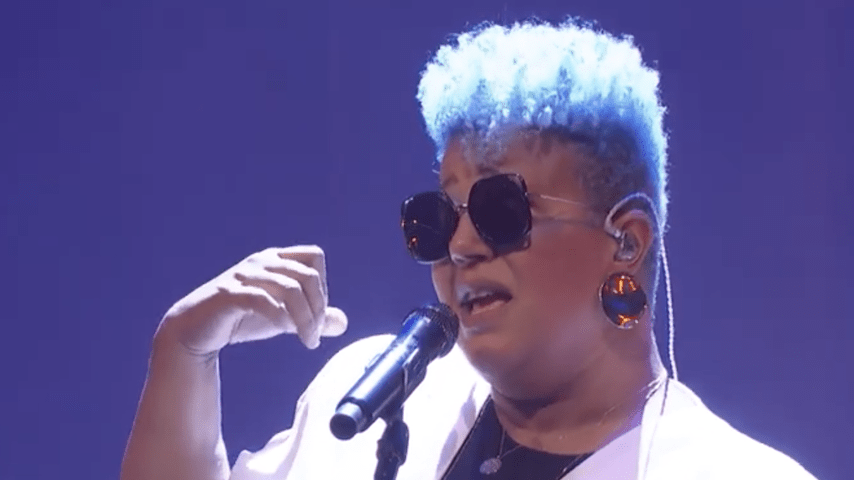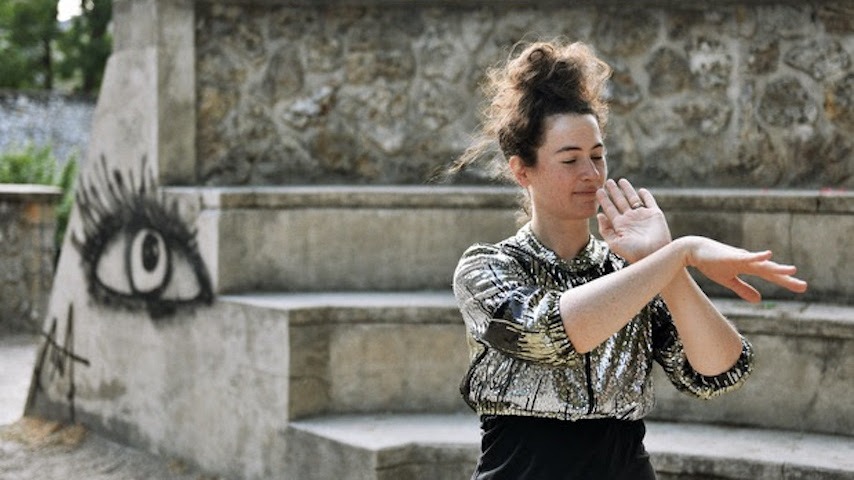Is This It? examines the current state of rock music through a modern-day lens, highlighting the artists, perspectives and sounds that have kept the genre and its dedication to counter-culture alive.
As I’m typing this, the 2021 Grammy nominees for Best Rock Album have just been announced, and judging by the list of only men who received the honor, as Emma Silvers tweeted, “I guess zero women made rock music again this year.” Japanese Breakfast, Arlo Parks and St. Vincent received nods in the Best Alternative Music category, but when it comes to emotive songs that fuse indie rock, pop and sometimes R&B elements into a singular sound (an interpolation we’ve referred to as rock since the birth of the genre), it looks like women just aren’t rock and roll. A recent litany of books and articles have hypothesized why the distinction of rock star isn’t offered to women as freely as men, from stories defending Phoebe Bridgers after David Crosby called her “pathetic” for taking part in the age old art of guitar smashing on SNL, to Maureen Mahon’s book Black Diamond Queens, which offers an extensive history of the Black women who were foundational to the creation of the genre and the specific misogynoir that leaves them out of its history. But as a recent, seasonally focused music meme brought to my attention, one of the most prominent reasons women are left out of rock canon is attached to expectations of how women should express their emotions, particularly when it comes to their music.
When I first heard Taylor Swift had released a “sad girl autumn” version of the 10-minute version of her song “All Too Well” from Red (Taylor’s Version), I had to push back against the desire to cringe. As a recent Swift convert (thanks to Folklore, an album that spoke directly to my propensity for indie rock), I tried to figure out what it was about the seasonal interpretation of the song that had pushed me over the edge. But then, after avoiding multiple collisions with a Twitter thread on how it’s unhealthy for Swift to be reliving her ex-relationship 10 years on, I stumbled upon my answer. When it comes to women in general, but especially when it comes to women who make art, we restrict their feelings to time limits and take part in tone policing, deciding which emotions they’re allowed to express, and how. Taylor had reached her deadline for grieving the relationship, and exhausted her options (a re-recording, film, and now “sad girl autumn” version) of how she could use art to process that grief. In my reaction to her latest version, I had, like many arbiters of rock, decided, based on the way a woman expressed her emotions through music, to no longer make space for it. Red (Taylor’s Version) isn’t a rock album by definition, but my reaction as well as many other people’s reaction to what they saw as something she should have moved on from, points to the larger issue I’ve seen across music, particularly in rock. And though we tend to make light of the emotions of women, labeling certain songs as perfect for “sad girl autumn,” it feels like the meme in some ways is making fun of women who are unafraid to unleash the full breadth of their emotions, adding another reason their music can’t be referred to as rock.
Despite institutions who vote on, categorize and decide who gets to be part of a certain type of genre, there is ample evidence that women expressing raw, uncomfortable emotions, even those deemed inappropriate, are at the frontlines when it comes to evolving a genre in need of new purviews and sounds. Take Snail Mail’s sophomore album Valentine, with the raw synth-driven track “Ben Franklin,” where she sings candidly about going to rehab, admitting to me in an interview that it was inspired by how long it takes her to heal. And even when these songs aren’t sad, they still showcase the power of unbridled emotion in art, like Courtney Barnett’s Things Take Time, Take Time which sees her finally writing love songs, like the stripped-back guitar track “If I Don’t Hear From You Tonight,” where she sings about celebrating the feeling of love, and the realization that even if a relationship could upend your life, it doesn’t really matter, because it’s worth it. And although a certain prototypical white woman comes to mind, when I hear the words “sad girl summer,’ when I think of tear-inducing definitive rock, I hear Yola’s anthemic folk-rock album, Stand For Myself, where she highlights that fraught existence of being a Black woman on her slow-burning, heartbreaking track “Barely Alive.” There’s also Pom Pom Squad’s indie-grunge album Death of a Cheerleader, with its painfully pretty track “Crying,” which sees vocalist Mia Berrin completely reveling and wallowing in her feelings, a perfect contribution to the ethos of sad girl autumn.
The phrase “sad girl autumn” is innocent enough, and artists embracing the theme is a sign that they don’t see it as a pejorative. But meme-ing the emotions of women, even when it’s well-intended, can take away from the impact and importance of their art. The women who’ve made “sad girl” music this year are the same ones keeping the rock genre relevant and alive, despite not receiving the proper recognition for it. Their emotional literacy and expressiveness isn’t something that should be trivialized, overlooked or subjected to a time limit. The emotional bravery it takes to make “sad girl autumn” music is something worth awarding (or, at the very least, nominating).
Erica Campbell is a host and rock journalist with stories in Spin, NME, and Alternative Press. She’s the former music editor of Consequence and owns a star ornamented boot collection that would make David Bowie proud. You can confront her about her boot hoarding habit on Twitter and check out her latest stories and interviews at campbellerica.com.



